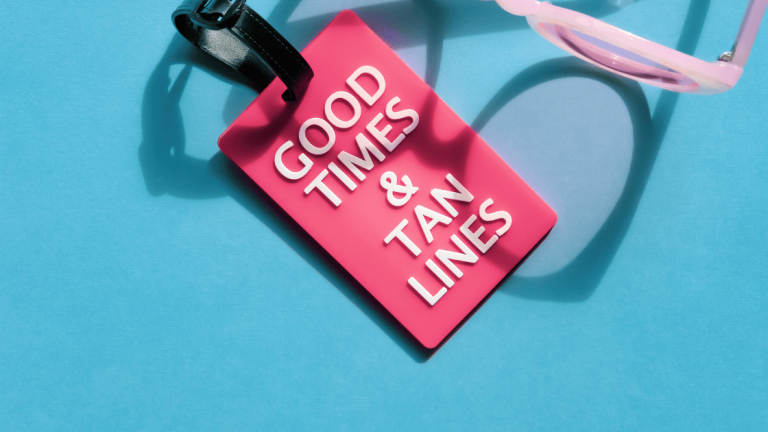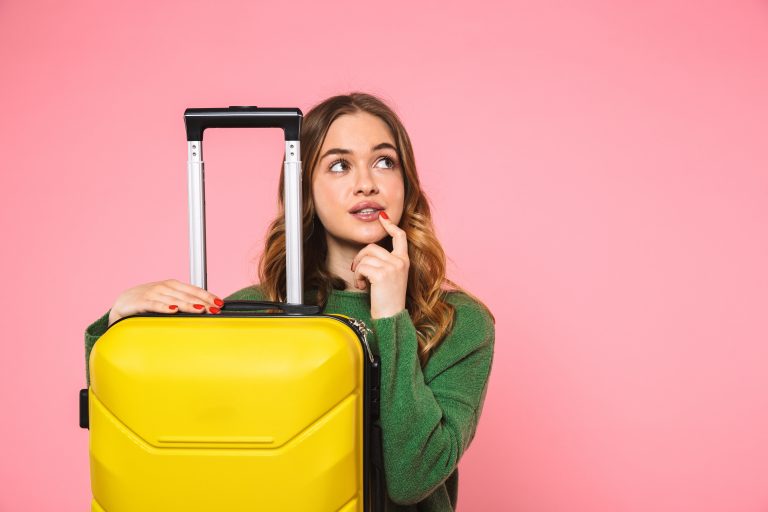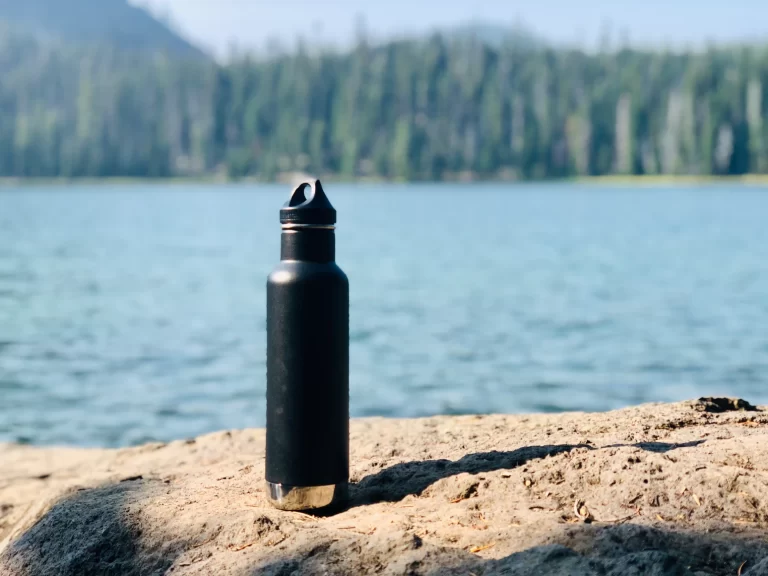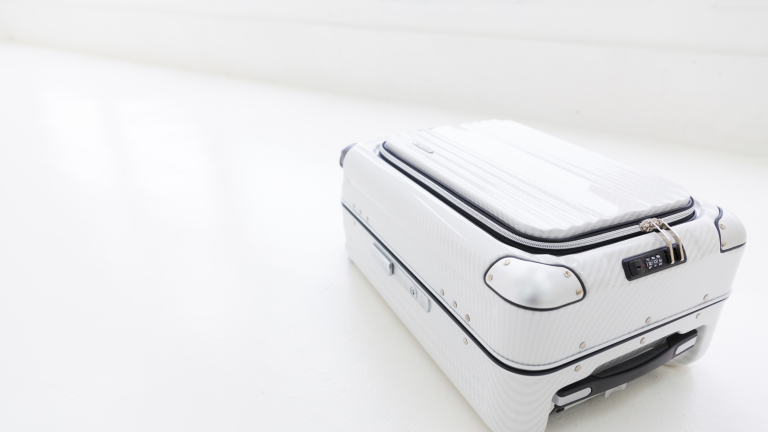Why Does Flying Make You Tired?
Many of us feel exhausted after a flight, especially a long one.
There are different reasons you will feel drained after your flight, but there are also ways to reduce this fatigue and even avoid it entirely.
Keep reading to find out what causes flight fatigue and what are the best ways to manage it!
There are several reasons why you might feel tired after a flight.
But not all causes will apply to everyone, so you will have to identify what aspect is the most detrimental to your energy and overall well-being.
Altitude level
Changing the altitude level will affect some passengers more than others but in general, everyone choosing to fly will suffer from elevation effects.
If you are used to living in a place that is below sea level or at sea level, you will feel the elevation effects more intensely.
Most airplanes fly at an altitude of 30,000 to 40,000 feet.
Side effects of elevation include headaches, tiredness, lethargy, and nausea.
Even if you might not experience these symptoms during the flight, you could still feel tiredness when you reach your destination.
Oxygen quality
Lower levels of oxygen can also cause flight fatigue.
Airplane cabins are made to simulate an elevation of 6,000 to 8,000 ft above sea level, and your blood will get a lot less oxygen at such pressure compared to what you are used to.
Even if the U.S. Federal Aviation Administration has clear standards about the pressure level that needs to be in the cabin of an airplane, this pressure will still be lower than the one you are used to on the ground.
As a consequence of this low oxygen level, you might feel sleepy, dizzy, and lack concentration.
And since your circulation will be reduced due to sitting for so many hours, all these symptoms might get worse, the longer your flight is.
Sedentariness
Sitting for several hours, depending on the length of your flight, is never a positive thing for your blood circulation.
So you will feel not only tired but also suffer different levels of numbness due to poor circulation.
If you have a blood disorder as well, this could be even more dangerous.
Bloating and digestive issues
Bloating as well as nausea can also be a side effect of high altitude and sitting for too long. But most likely, you will experience such symptoms at the end of your flight. Your body will work more intensely to control the blood circulation during the flight, which could cause bloating and digestive issues after it. Your body works more to keep these symptoms under control and you might feel the need to take a long nap, after an already long light.
Jet lag
This could also cause excessive tiredness after you landed but you will need to understand what it is before you learn to keep it under control. Jet lags are common for travelers who change time zones during a flight. Your body is used to a certain time zone, and it adjusts its internal clock to it (circadian rhythm). When your circadian rhythm is not synchronized with your body, it will take a lot more energy to adjust this rhythm to optimum levels. So, you will not only feel more tired but you will feel generally under the weather for a while after you land.
Humidity levels
The level of humidity is different inside an airplane than the one you are used to in your regular environment. Most planes have a humidity level of 10% to 20% which is a lot lower than the humidity inside a house which can be around 40% to 60%. The dry air inside the plane cabin will give you different symptoms, among which tiredness will be the most obvious one, along with dehydration. You might also feel nausea and dizziness, depending on how your body responds to the low humidity.
Plane movements
Last but not least, you might simply feel tired at the end of your flight after being in a plane for hours. During the flight, you will experience turbulences, different noises, and movements that your body is not used to, and it has to adjust to them for as long as the flight takes. Naturally, at the end of it, you will feel the need to rest and relax as your body gets back to its normal state of gravity and balance.
Does Flying Dehydrate You?
Flying can lead you to feel dehydrated due to low oxygen levels and general air circulation.
One of the main causes of dehydration during your flight is the fact that the air is drier at high altitudes.
As a consequence, you will breathe in drier air and exhale moisture.
This can cause you to suffer from dehydration and feel more tired than you normally would.
However, dehydration tends to be a problem on longer flights that take several hours.
If you are flying for 30 minutes to one hour, you shouldn’t severely suffer from dehydration unless you didn’t drink enough water before your flight.
The higher the altitude, the bigger the risk of dehydration as the air will be thinner too.
The way low humidity and dry air affect you is by attracting the moisture from your throat and nose like a magnet, leaving you dehydrated.
Your nose and throat need to have enough moisture to filter the pathogens in the air that you breathe.
When you are not hydrated properly, you take a higher risk of catching a cold or other respiratory condition.
How Can You Avoid Flight Fatigue?
Now that you know what are the main causes of flight fatigue, you will want to do your best to avoid it and help your body adjust to the new conditions inside the plane better.
Luckily, there are several things you can do for that!
Here’s what you can do to prevent some of the tiredness that could affect you during and after your flight.
Stay hydrated
Staying hydrated should be your main priority when you fly.
The rule says that you should have some water every 20 minutes to stay on top of dehydration. You should never wait until you are thirsty to drink water. If you don’t have water with you, ask the flight attendant to bring you some water and keep sipping regularly throughout your flight. If you feel thirsty, take that as a signal that your body is already starting to dehydrate.
Using eye drops will also help you keep your eyes away from dehydration and irritation.
If your eyes feel irritated and dry, rubbing them will only make them feel worse.
So, have eye drops that suit your eyes and use them when you feel that your eyes are irritated or dry.
The nasal spray will also help to keep your moisture level in your nose and make breathing easier even if the air around you is dry.
Plus, using nasal spray will also help you if you suffer from nose bleeds due to dehydration, which is a common occurrence for passengers during long flights.
Use your nasal spray before you get on the plane, and every time you feel that your nose gets dry and itchy during your flight.
Your skin will need some help to fight dehydration as well, and a moisturizer is the best thing to have in your handbag for this.
Depending on the length of your flight, you might apply it several times.
Focus on the parts of your skin that are exposed to the air such as your hands, arms, and neck.
Eat healthily
Your diet is generally very important for your energy level, but it becomes even more significant on the day of the flight.
Fast food and food that is heavily processed will only add to your fatigue and tiredness because your body will have to put more effort into digesting it.
Also, alcoholic beverages are not a good choice during a flight.
Both alcoholic drinks and salty foods or snacks will increase your thirst and will add to the dehydration that is already a problem during your flight.
You might even experience tummy aches due to the levels of pressure that don’t help digestion at all.
Rather than going through this, you want to stick to healthy meals before your flight.
Eat balanced meals of veggies, and lean meat, and reduce the content of sugar or unhealthy fats.
Healthy meals will give you energy during and even after your flight, and veggies or fruits with a high content of water will help you stay hydrated.
Don’t exaggerate with caffeine
Your first instinct to keep fatigue away might be to increase your caffeine intake before and during your flight. B
ut this will be working against you.
Too much coffee will cause you to suffer from sleep deprivation.
You will be just as tired only that you will not be able to enjoy a good nap to recharge your batteries.
You also want to stay away from sodas and energizing drinks that will have the same effect on you, and at the end of the day, they will make you feel more tired than you are.
If you can, take a nap
There is no reason why you shouldn’t take a nap during your flight if you can fall asleep.
Some passengers suffer from severe anxiety during flights which will increase stress levels and not allow them to sleep.
But if that is not your case, you should sleep as much as you can so you will be more rested when you reach your destination.
Compression socks
Compression socks can turn out to be extremely useful during long trips.
These socks will compress your feet and keep your blood circulating during those long hours of sitting.
While you will be able to move your upper body easier, your legs will be more limited during the flight.
Wearing compression socks will also prevent your legs from swelling, and you will feel much better at the end of your flight.
Exercise
You might be surprised to know that you can exercise during your flight.
Of course, you will not be able to do any complex exercises in a plane but moving your body will help you increase circulation and reduce tiredness significantly.
Stretch your arms, do neck exercises, engage your abdomen and even get up to stretch your legs or take a short walk on the plane.
Any type of movement will help you keep your blood flowing, and you will feel more energized as well.
Try to do such exercises every half an hour to stay on top of swollen feet, fatigue, and tiredness during your flight.
Keep yourself entertained
Long flights tend to have different means of entertainment at the disposal of the passengers.
You might have the option to watch a movie or a tv show, read a book or magazine and keep your brain active during your flight.
If you have a hobby that you can practice during your flight, such as drawing or writing, by all means, do that!
Keeping your mind active is an essential aspect of maintaining your energy level high and not feeling overly tired.
So, consider the reasons that you might suffer from flight fatigue and do your best to prevent them.
You will enjoy your flight a lot more, and you will feel ready for your new adventure!
You Might Also Like To Read:
How Much Liquid Can You Take On A Plane In Checked Baggage
Can You Bring A Water Bottle On A Plane?
How Much Is 100 ml?





